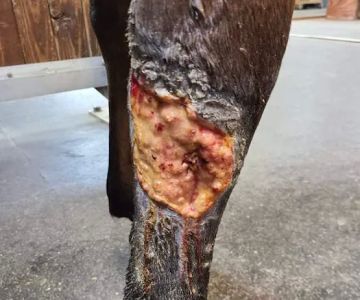Steps to Becoming a Veterinarian: A Complete Guide for Aspiring Vets
Step 1: Understanding the Role of a Veterinarian
Before you decide to embark on the journey to become a veterinarian, it's crucial to understand the role this career entails. Veterinarians play an essential part in animal healthcare, diagnosing illnesses, treating injuries, performing surgeries, and providing advice to pet owners and animal caretakers. It’s a profession that requires dedication, compassion, and a solid understanding of both animal health and medical science. The responsibilities of a veterinarian can vary depending on whether they specialize in small animals, large animals, or exotic species.
Step 2: Obtain a Bachelor’s Degree
The first academic step to becoming a veterinarian is to complete a bachelor's degree. While some might assume that only biology majors are suited for this path, any degree related to life sciences, including animal science or chemistry, will give you the foundation needed for vet school. Your undergraduate studies will introduce you to the basic principles of biology, chemistry, and physics, which will be crucial as you advance into more specialized veterinary topics.
In addition to academic studies, it's essential to gain practical experience working with animals. This could involve volunteering at animal shelters, internships at veterinary clinics, or working at farms. These experiences will not only bolster your application for veterinary school but also give you a deeper understanding of the demands of the job.
Step 3: Attend Veterinary School
After earning your bachelor’s degree, the next step is to apply to a veterinary school accredited by the American Veterinary Medical Association (AVMA). Veterinary schools are highly competitive, and the admissions process often includes a rigorous review of academic performance, personal essays, letters of recommendation, and relevant experience. In vet school, you will undergo extensive training that covers topics like animal anatomy, surgery, diagnostics, pharmacology, and much more. You’ll also have the chance to work hands-on with animals in clinical settings.
Veterinary school typically lasts for four years, and upon graduation, you will earn a Doctor of Veterinary Medicine (DVM) degree. This is a major milestone in your journey to becoming a veterinarian.
Step 4: Gain Experience Through Internships and Residency Programs
While earning your DVM degree is an accomplishment in itself, it's important to gain further experience through internships or residency programs. During your internship, you’ll work under the supervision of experienced veterinarians, honing your skills and learning more about specialized fields of veterinary medicine, such as surgery, dermatology, or emergency care. A residency program can also help you specialize further and increase your earning potential as you become an expert in a specific area.
In addition to these programs, many veterinarians work in general practice for a period before pursuing specialization. This allows you to gain a broad range of experience before focusing on a specific area of interest.
Step 5: Obtain Licensing
To legally practice as a veterinarian, you must obtain a license in the state where you plan to work. In the United States, this usually involves passing the North American Veterinary Licensing Exam (NAVLE). The exam is comprehensive and tests your knowledge in all areas of veterinary medicine. Additionally, many states have specific requirements, including clinical exams or additional tests, depending on the state regulations.
Once licensed, you will be able to work as a practicing veterinarian and begin your career in animal health.
Step 6: Continuing Education and Career Advancement
Becoming a veterinarian is not the end of your learning journey. The field of veterinary medicine is constantly evolving, with new treatments, technologies, and practices being introduced regularly. As a veterinarian, it’s important to stay up-to-date with the latest advancements. Many states require veterinarians to complete continuing education courses in order to maintain their license.
Additionally, after gaining experience, you may choose to specialize in a specific area of veterinary medicine, such as animal surgery, internal medicine, or dentistry. Specialization can involve additional training, certifications, and even fellowships, but it can significantly expand your career opportunities and income potential.
Step 7: Enjoy a Rewarding Career in Veterinary Medicine
Once you’ve completed all the necessary steps, including education, internships, and licensing, you’ll be ready to begin a rewarding career as a veterinarian. The work you do will have a direct impact on the health and well-being of animals, and you’ll experience the satisfaction of making a difference in the lives of pets and their owners.
Veterinary medicine is a career that requires hard work, dedication, and a lifelong commitment to learning. But for those with a passion for animals and an interest in science, it can be one of the most fulfilling careers.











